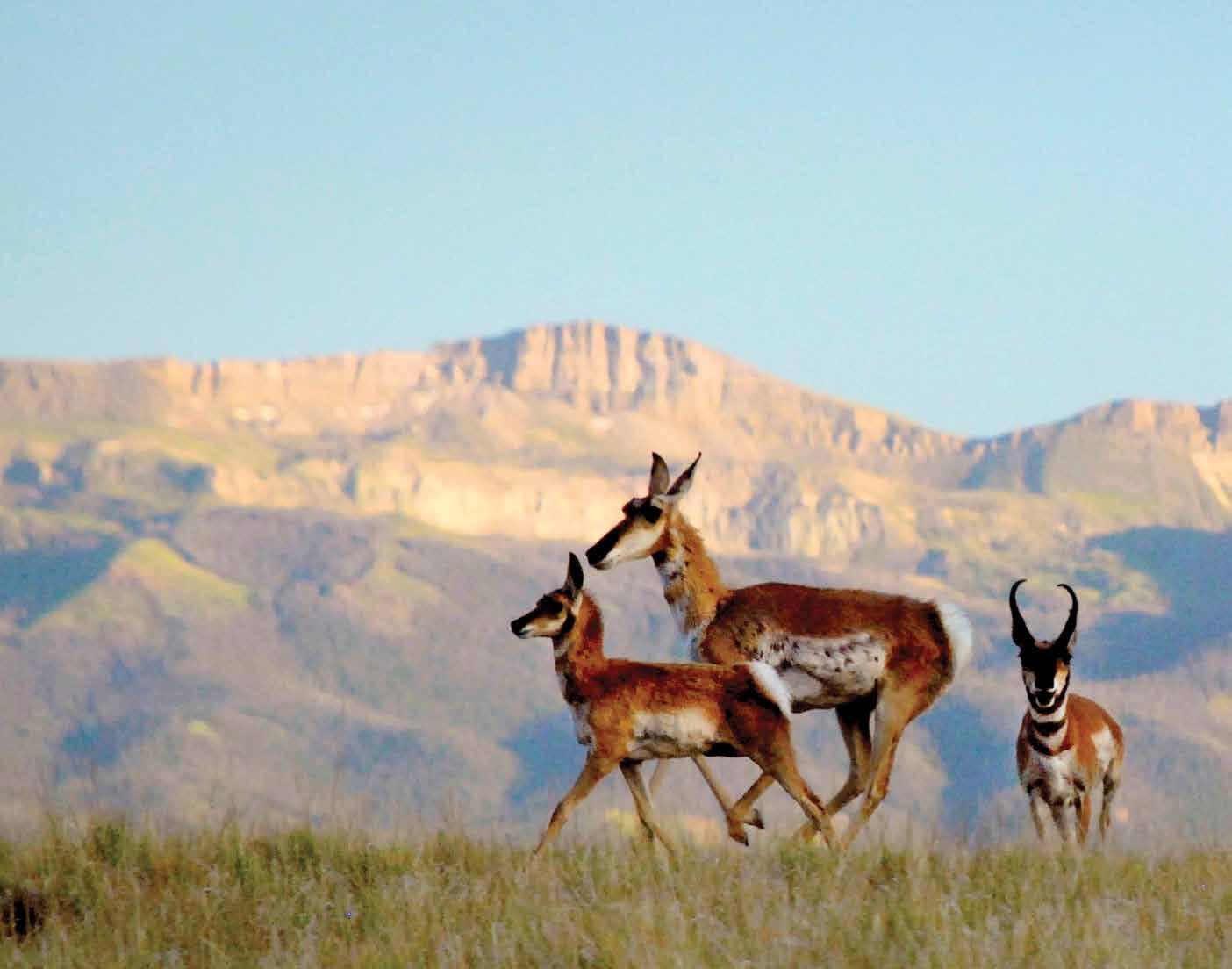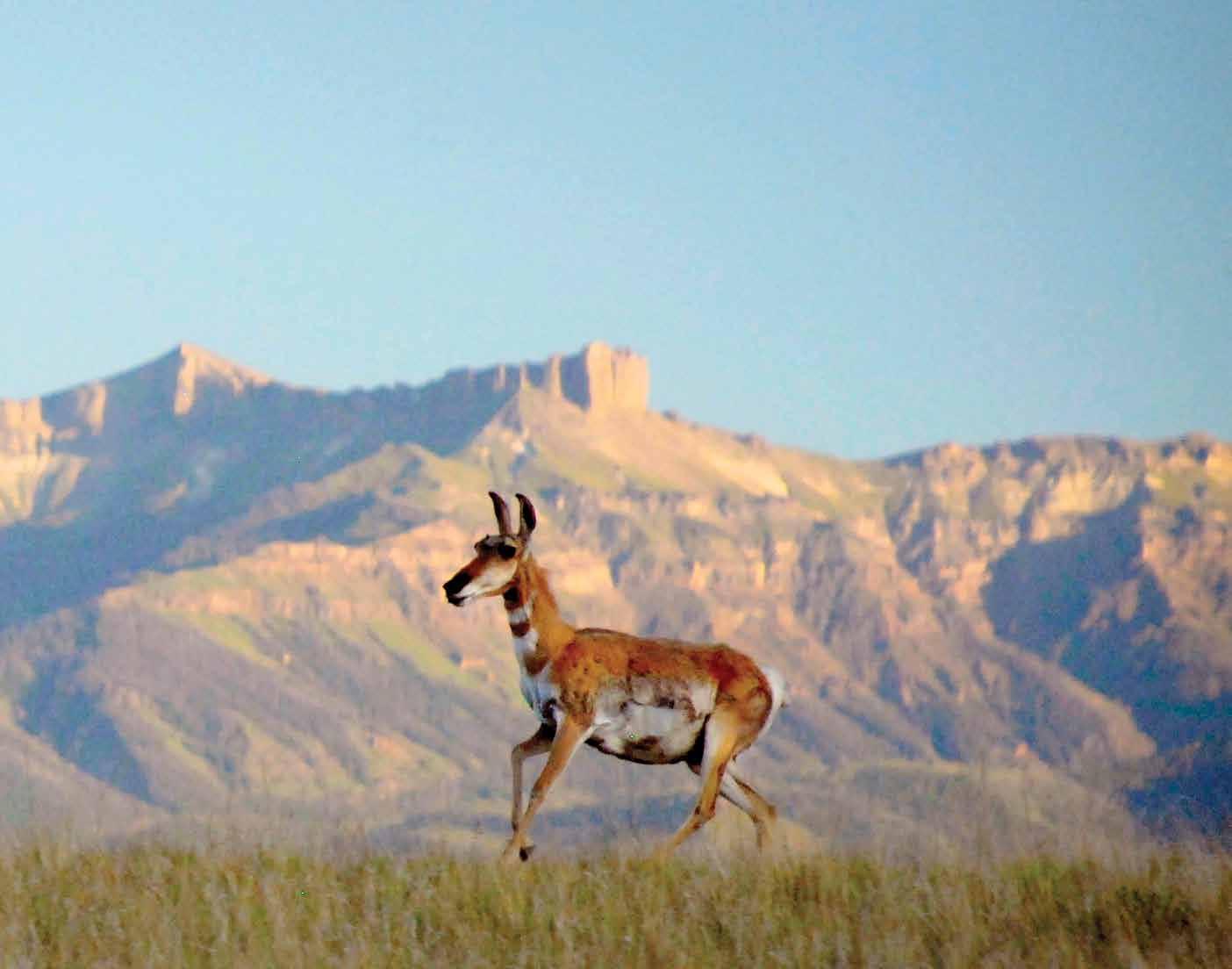Goff Books
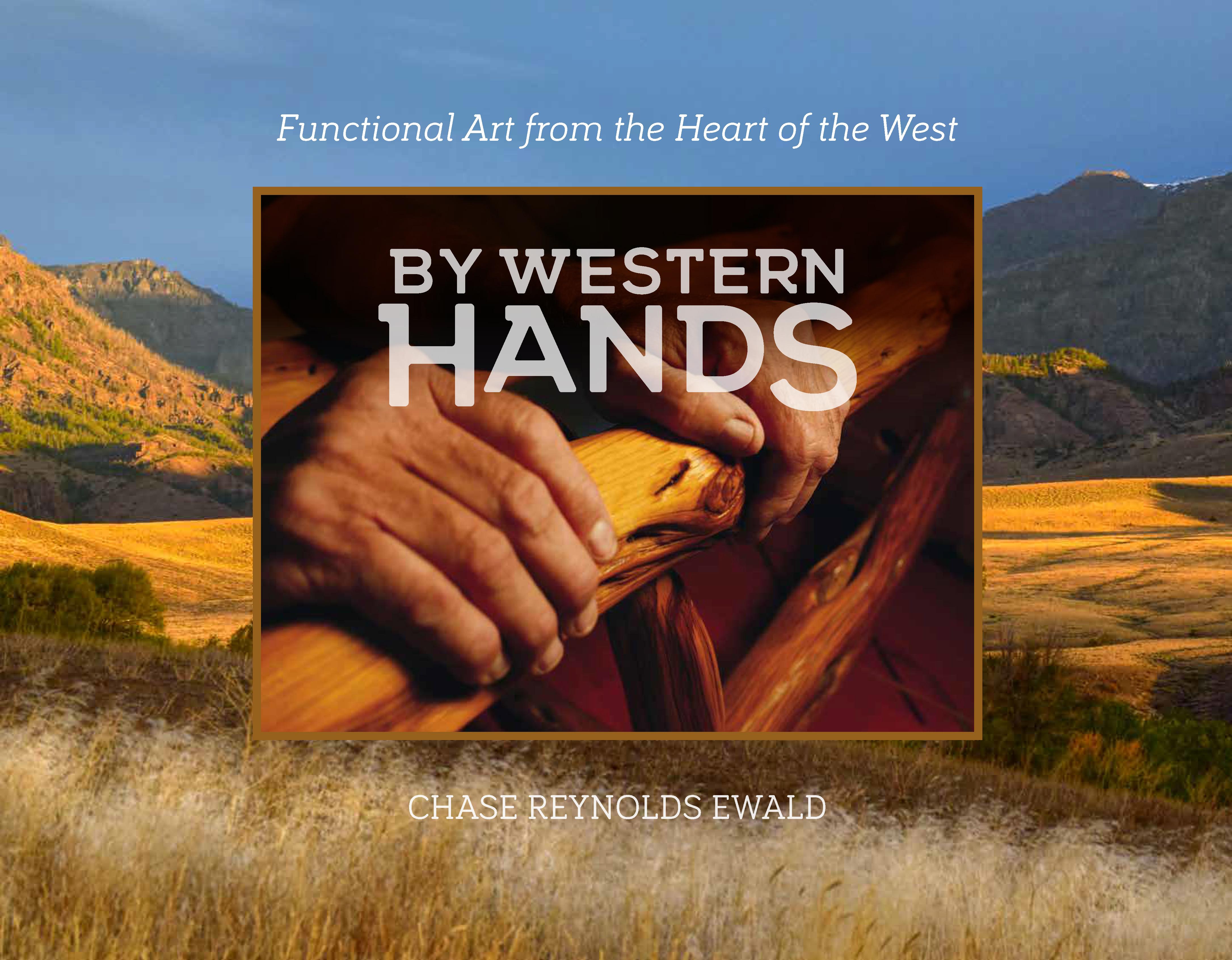


When William F. “Buffalo Bill” Cody and his business partner and friends founded the town of Cody, Wyoming, in 1896, they had a vision of the community as not just a tourist town at the east entrance to Yellowstone Park, but as an artist community set within a beautiful, inspiring setting. Growing up in Cody I was influenced by this vision.
I was raised in a family of aesthetes. They appreciated beauty and knew quality. The furniture and furnishing of our lives in the West were and are a mix of from where and whom we have come. There are family heirlooms, antiques, and art. Every item has a story of the people who owned the pieces and/or who made them. There is an appreciation of history — of the past. And sprinkled amidst the history is contemporary craft and reimagined design.
In the 1940s in Cody my grandparents were friends with Thomas and LaVerne Molesworth. They enjoyed each other’s company and contributed to the culture of their community. My granddad and Tom loved to play cards and share happy hours together. In 1954 my granddad commissioned Tom to create a roomscape in the main room of the family ranch. It was his twenty-fifth-anniversary present to my grandmother. Although she was more interested in Victorian décor, she came to love it and was completely at home as she hosted family and guests in her “New West” room. Almost seventy years later it is still the place where our family gathers. It was and continues to be a setting made for conversation, games, and sharing.
The ranch is traditional, quintessentially western design. Log buildings are scattered throughout the property. Inside it is decorated with pieces that speak of style born of location, a confluence of diverse cultures, and a love of place. When I travel throughout Wyoming and the West visiting various homes and ranches, that same theme resonates for me. It is a sense of place and a love of place that informs western design, just as it helps define the independent spirits of the people who inhabit this country.
Western design uses natural materials inspired by location. It is the materials, and the spirit of the artisan who brought them together, that defines western design for me. It is living with the past, present, and future all at once.

“Mom loved riding but she didn’t really enjoy going to the ranch. It was in tough shape; it had been a dude ranch and was bought at a sheriff’s sale. But Dad had grown up spending time there and loved it. Dad said to Tom Molesworth, ‘Moley, Lorna doesn’t really relish this room; just do it up.’ He took her up there on their 25th anniversary, threw open the doors and she was trapped. There have been many word sessions of sharing and transparency in that room, there have been tears and cheers and lots of things...”
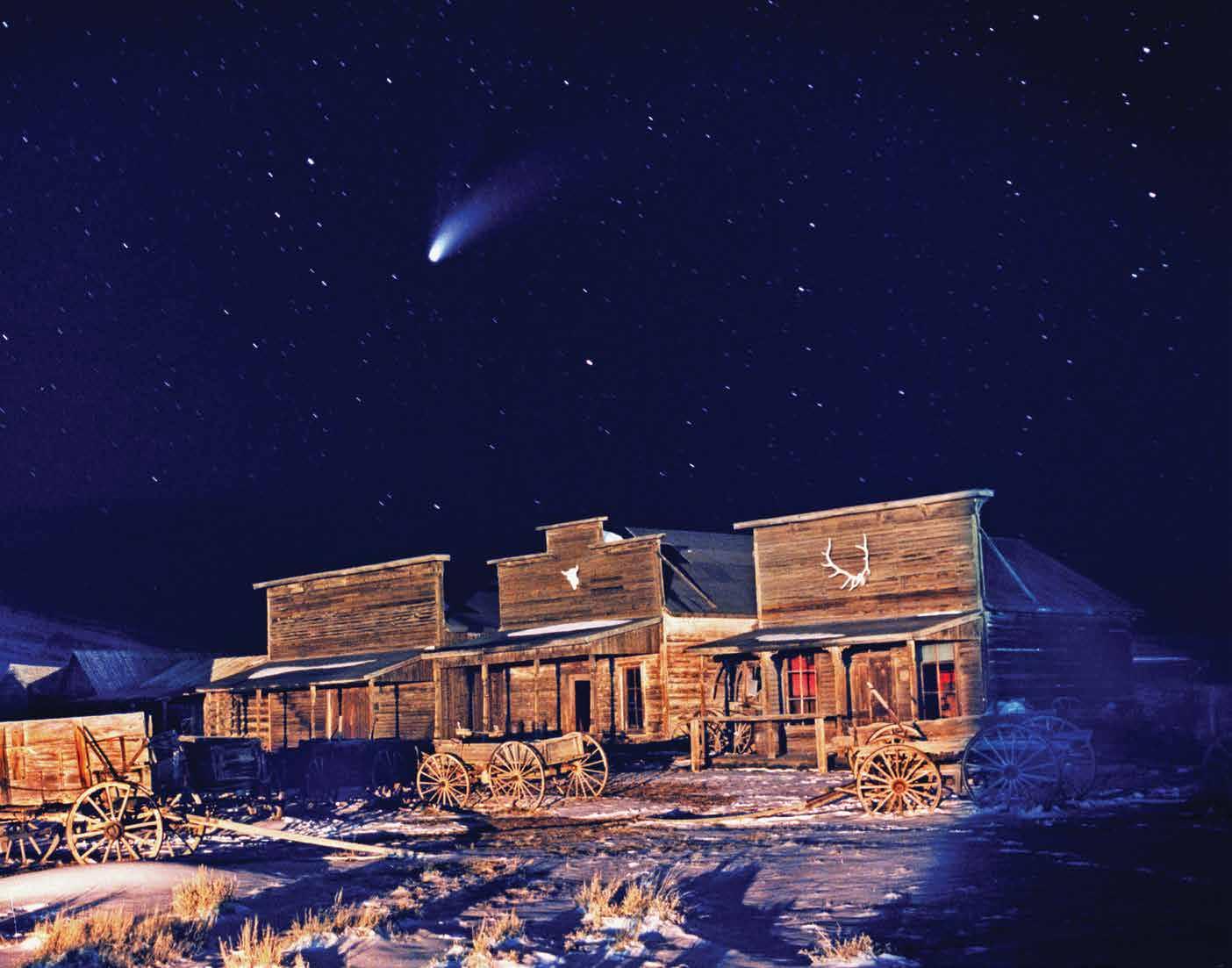 — Alan K. Simpson
— Alan K. Simpson
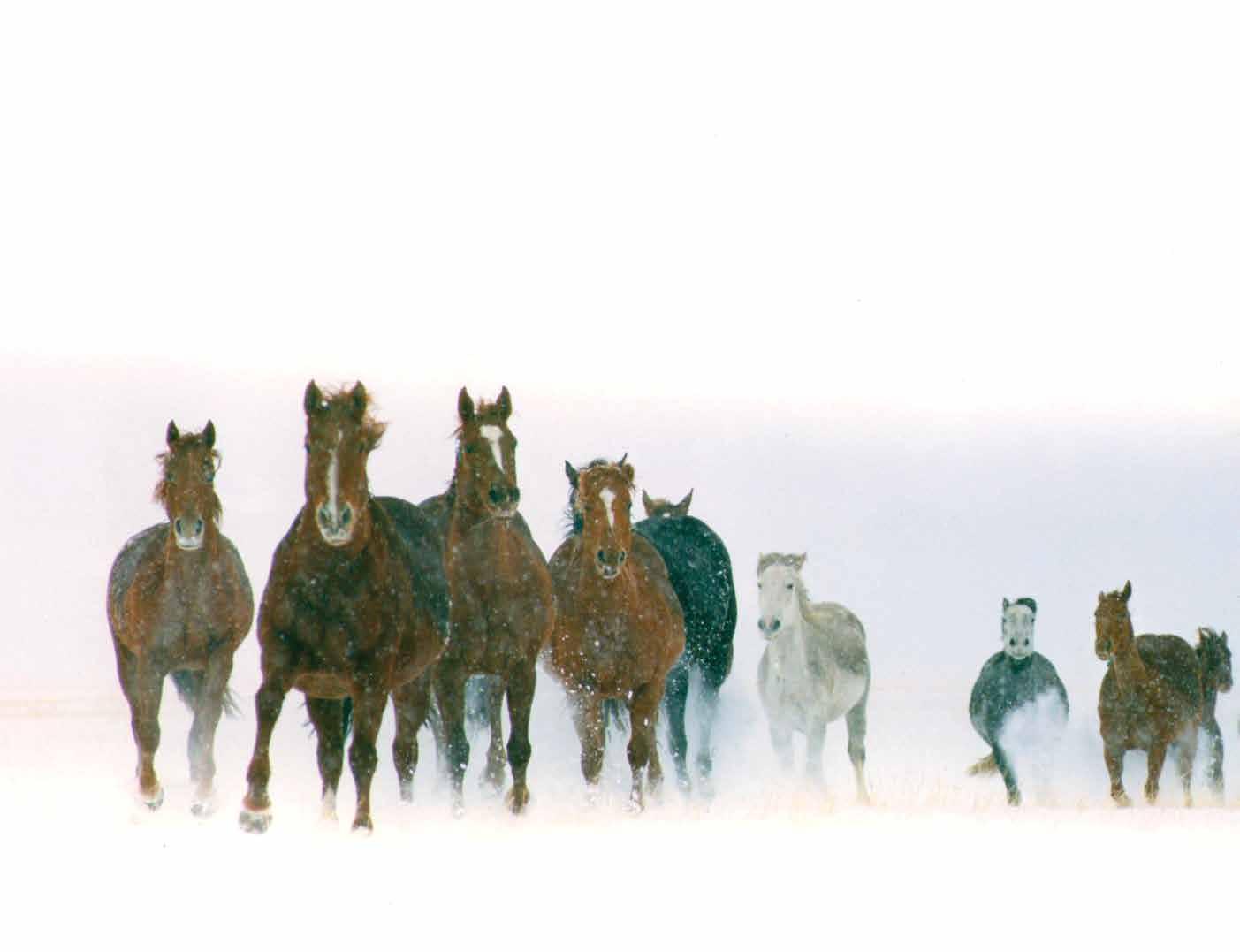

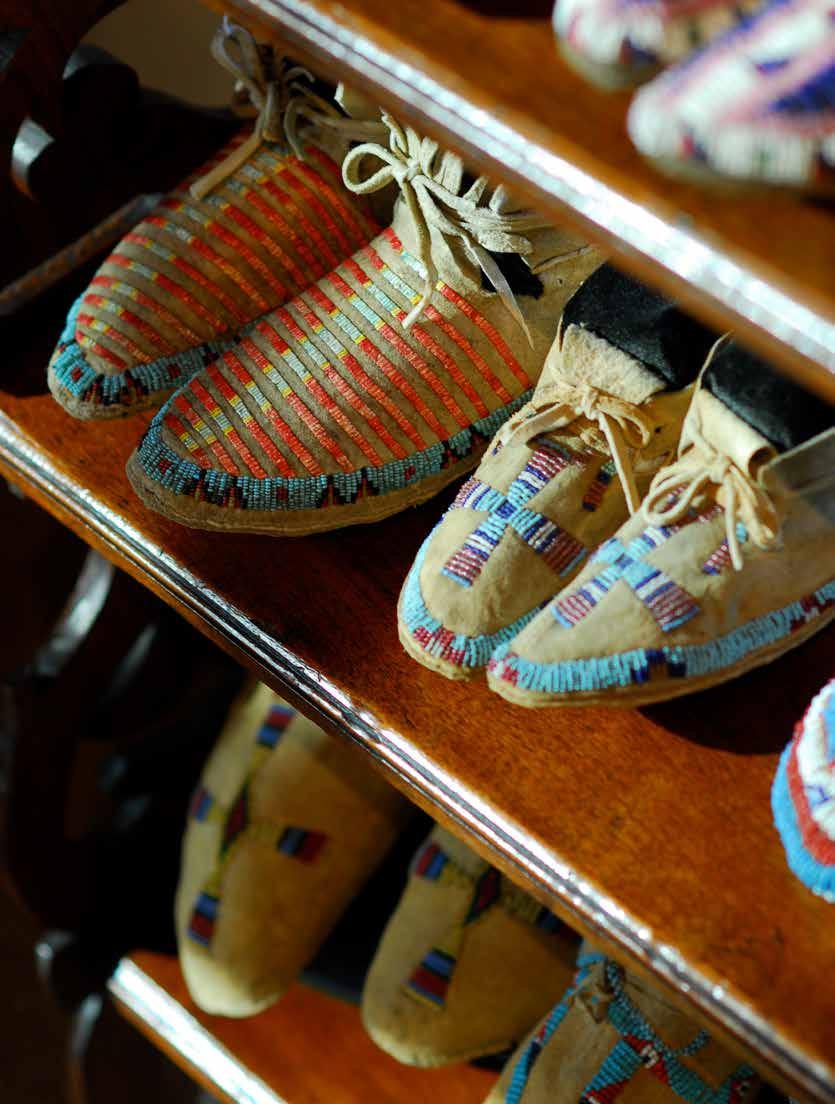 By Terry Winchell
By Terry Winchell
As a young kid growing up in Eastern Wyoming/ Western Nebraska, some of my favorite times were those spent visiting our national parks and national monuments. My favorite of all places was Mount Rushmore and Custer State Park. I grew to love the log buildings with all their rustic furnishings and their connection to nature and the surrounding environment.
It became a dream of mine to live in the mountains and enjoy the synergy between environment and our surroundings. This became reality in 1980 when I moved to Jackson, Wyoming. At the time, forty-plus years ago, Jackson was still very much a summeronly tourist town near Yellowstone and Grand Teton national parks. There were still numerous dude ranches, most of them inholdings within Grand Teton National Park. Most of the ranchers had sold their property to the park but were allowed to stay and operate their ranches until they died.
We opened Fighting Bear Antiques in 1981 and managed to make it though the early years by operating a general-line antique shop. This all started to change as some of the guest ranches, such as the Bar BC and White Grass, were forced to close and sell off their contents. I had begun to really appreciate
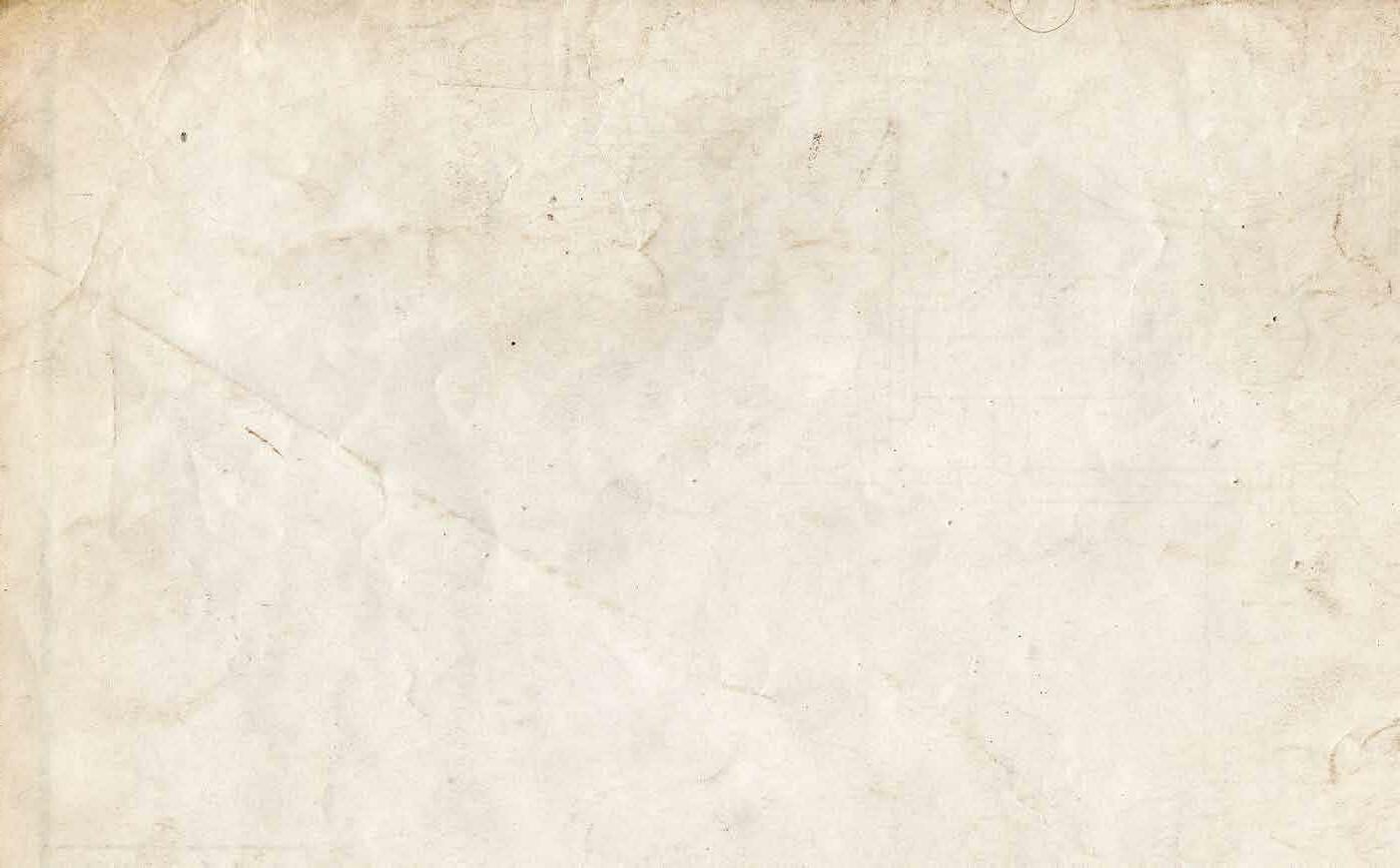
combination wardrobe/desk made by Albert Gabbey who owned the Square G Ranch, near Leigh Lake in Grand Teton National Park. Made entirely of lodgepole pine, the surface is covered in a mosaic twig style with handmade drawer pulls and latches. At the time I did not know the inspiration for the piece, but several years ago I bought Albert Gabbey’s library and there was a great book, titled Rustic Carpentry, by Paul N. Haskuck and printed in England in 1890, that I am sure inspired the design. I am sure Gabbey spent a long Jackson Hole winter preparing all of the small poles to cover the exterior. This started a love affair with western furniture that has never ended.

In 1988 I was called to go look at an estate that had been left by Eileen Hunter to our local school district and hospital. Hunter Hereford Ranch was an inholding in Grand Teton National Park that had a great log lodge and several guest cabins with 360-degree views of the Grand Tetons. The interior of the lodge was filled with pole furniture, couches, chairs, and tables with robust colored leather in neon green, raincoat yellow, and red. Navajo rugs covered the floors and walls, along with western paintings and photographs.
collection of Molesworth furniture was an extensive one. Molesworth provided the lighting, fireplace screens, and even the china.

the rustic handmade furniture that graced many of these ranches. Since Jackson had no rail spur, the ranchers had rustic furniture made to fill their lodges and cabins. It was also a way to bring the outside environment into the interior of the cabins. This connection with nature became very important as people fled polluted cities to vacation or live in the clear mountain air.
I well remember my first piece of rustic furniture, which I still own. I bought a wonderful tall
Although I did not know who had made the furnishings, I knew that I loved them and would have to own them. I purchased all of the contents and soon found out who’d made them. The owners had purchased all of the furniture at Gump’s Department Store in San Francisco right after World War II and had it delivered to their ranch, not knowing at the time that it had come from Cody, Wyoming, a mere ninety miles away. Tom Molesworth himself came to help install the furnishings and Navajo rugs. Molesworth even sold them the curtains, which had been custom loomed in England with western patterns. My first
I quickly learned all that I could about the Shoshone Furniture Company and Thomas Molesworth, and the success of Thomas Molesworth as a businessman became quickly apparent as I traveled the country buying collection after collection of almost 4,000 pieces to date.

Thomas Molesworth first became acquainted with rustic furniture while living in Billings, Montana and working at Rowe Furniture. Billings had an active group of woodworkers and hobbyists. In an early photo from the 1930s, Molesworth is pictured along with E.W. Keene at the 4-K Ranch in Dean, Montana. The 4-K (Keene’s Kozy Kabin Klub) was a weekend retreat, not far from Billings. E.W. Keene built a large lodge and a number of weekend cabins and furnished
them with his handmade furniture. The area had numerous fir trees and burls were plentiful. He utilized the burls and, along with a craftsman named Eagle Rathe, furnished the lodge with a wonderful collection of burled furniture.

When Molesworth first moved to Cody, he sold manufactured furniture and even coffins. Business was tough and in an act of desperation, Molesworth filled his front window with rustic fir pole furniture, built with his own hands. He soon had some orders, one of the earliest from Alex Hubner of the Indian Head Ranch located up the South Fork in Cody. Soon after that, Moses Annenberg saw his store display and ordered over 300 pieces for his newly acquired Ranch A in Beulah, Wyoming. In a quote from Dude Rancher magazine in 1935, Annenberg said, “Young man, no doubt you have dreamed of how you would furnish and decorate a cabin if you had all the money in the world to spend on it. If so, go the limit; forget the cost.” And Molesworth did just that.
The Ranch A commission gave Molesworth some much needed capital. More importantly, it allowed him the opportunity to start to develop his distinctive western style, complete with custom lighting, Navajo rugs, game heads, and Indian artifacts.
Word of Molesworth’s custom-made rustic furniture spread fast. He had created a market, but he never took into consideration the size of the market. Shortly after the Ranch A lobby commission, Molesworth furnished the Plains Hotel in Cheyenne, Wyoming. This commission, along with several other hotels (the Grand Hotel in Billings, Montana, and the Emory in Thermopolis, Wyoming), really put Molesworth on the map. Visitors to Cheyenne Frontier Days saw Molesworth’s interiors and ordered furniture as fast as Molesworth could make it.
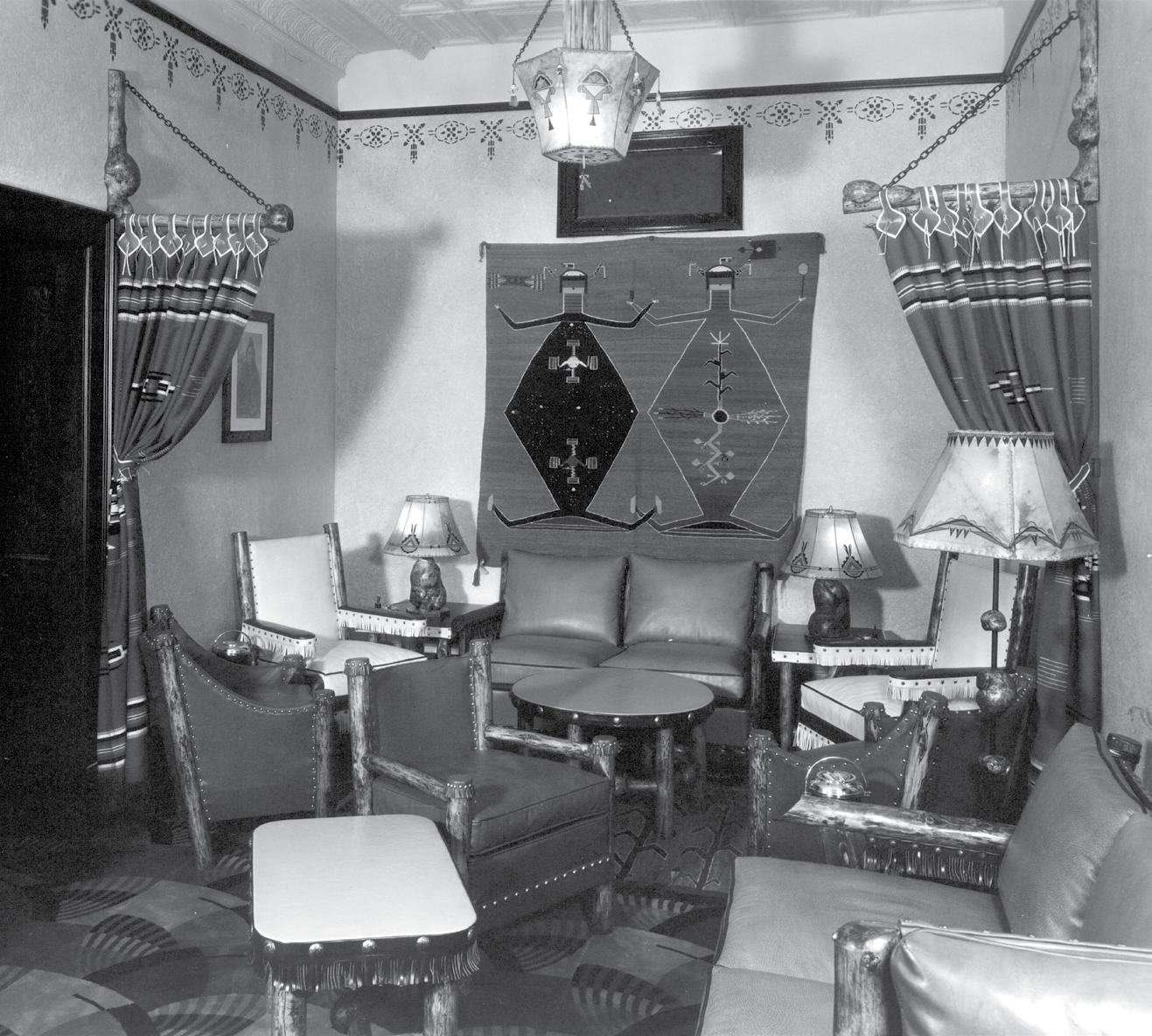

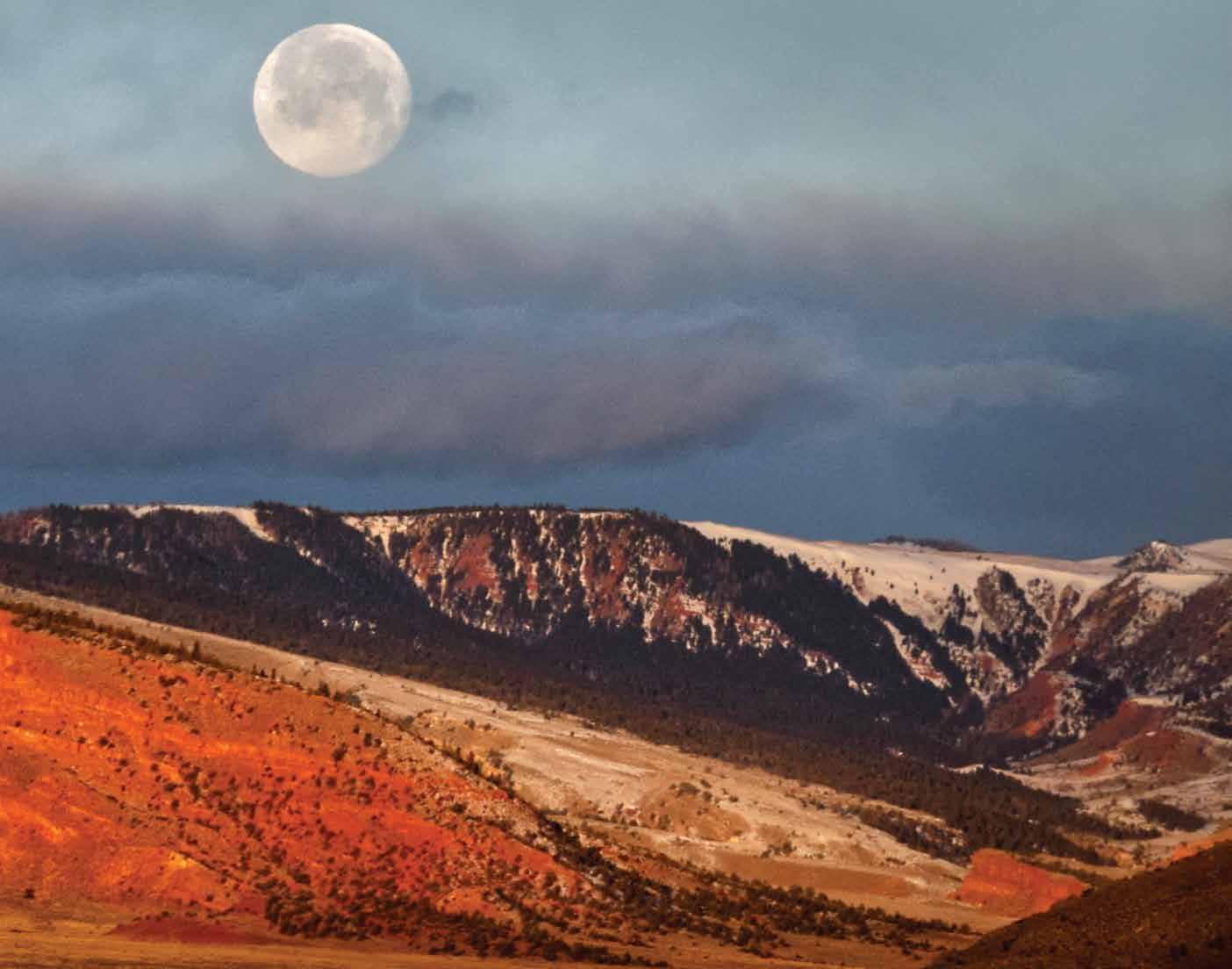
Steve Fontanini started doing metalwork back in the 1970s when he was a kid in California. He learned in his high school’s shop and also got practical experience working locally. He moved to Wyoming soon after and has lived in the same home in Teton County since 1984. Steve is a blacksmith, designer, and builder working in steel, bronze, stainless steel, and aluminum to make furniture and other forms of functional art. His Bear Head Log Rack, forged from mild steel, features short blocks of steel hammered into a long taper then hand bent to a curved radius. The pieces are joined with mortise-and-tenon joints and rivets, and the bear head is hammered into shape from a solid piece of three-inch round bar. Steve has made similar log racks with a variety of finials over the years; it is a favorite project of his because the forged pieces undergo such a dramatic transformation of shape. Steve has taught blacksmithing classes and demonstrated in his shop in Teton County, at By Western Hands, and throughout the U.S. He enjoys sharing his insight and experience but says that for him the old adage “The teacher learns more than the students” still rings true.

A hand-forged platter of deep black iron finished with a wax surface to withstand the test of time. Both the off-center braid detail and the three legs that support the piece provide interest while remaining balanced.

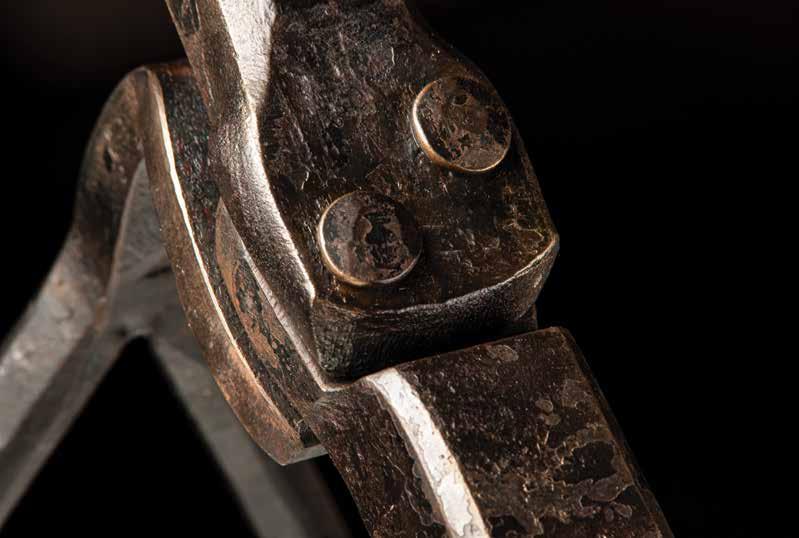
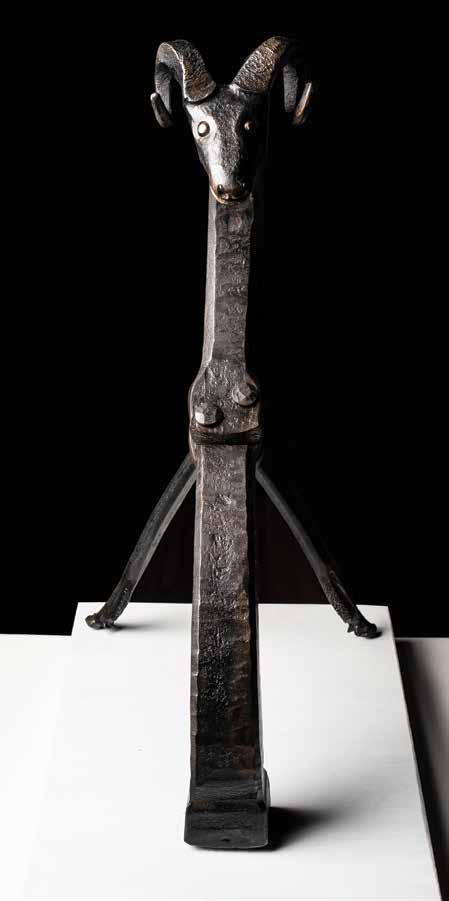
“I draw inspiration from the world around me, as well as the ways that hot metal can be manipulated.”The Wyoming Ram is a hand-forged tabletop sculpture made in the By Western Hands workshop.
Brad has been working with wood since he was a boy learning alongside his dad in his workshop as they carved duck decoys, refinished furniture, and repaired household items. He took a strong interest in wood and metal classes in secondary school, and early on studied under furniture-maker Michael Cooper. A full-time furniture maker since 1986, Brad has persistently sought a deeper understanding of traditional woodworking techniques and the characteristics of many wood species. After he and his wife, Lorraine, raised their four sons on a homestead ranch in California’s Sierra Valley, they relocated to Livingston, Montana. In his woodwork, Brad prefers hardwoods destined for the chipper, such as walnut trees that have stopped producing or storm-downed oaks and elms. His designs combine any variety of reclaimed metal and multiple hardwoods, high-relief and three-dimensional carving/ sculpting, hand tooling, metal-smithing, and vintage materials. In every piece he places a signature copper-leaf inlay. He has delighted design conference attendees with pieces incorporating working pulleys, arcade games, secret compartments, Old West dioramas, and animatronics. His Save the Ranger shooting game tasks the player with saving park rangers from rampaging grizzlies. He’s created western-themed nut dispensers using whimsically transformed vintage machines. He’ll incorporate vintage farm implements into a standing lamp, and the Card Cheater’s Table has a clever mechanism for hiding cards. His Bison Desk combined six different woods with steel, rock screen, archival print, antique hardware, mica, bison fur, handmade internal mechanism, and a copper-leaf inlay. In many of Brad’s pieces, especially his live-edge book-matched walnut tables, simplicity reigns and he allows the beauty of the wood to speak for itself.
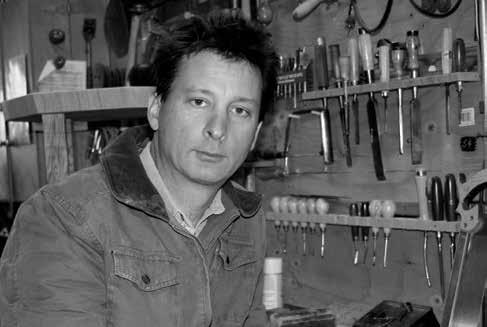
The artist’s innovative approach to furniture composition unites an array of hardwoods, repurposed industrial materials, Old World talents, and stunning carvings.

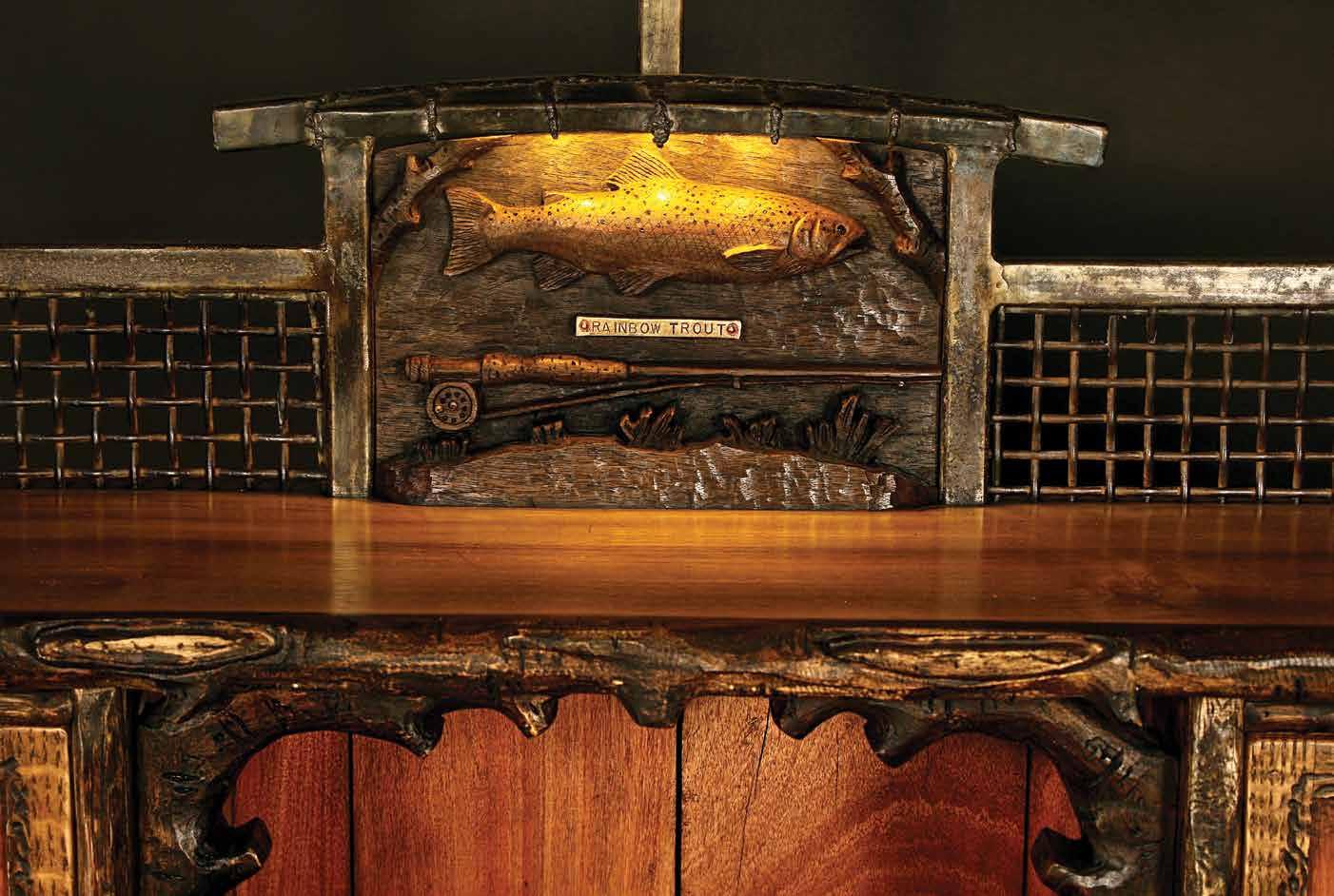
“Old World masters are my number one inspiration, simply because of their jaw-dropping creations. I imagine them as extremely hardworking artists, totally devoted, with a passion to continually push themselves to the next level. That’s who I aspire to be. I put my heart and soul into each and every piece I create. I want my pieces to transcend time and be an inspiration to future generations of artists.”

Named for the ‘Sagamore’ or American Indian Chief, the entry table features drawer embellishments made from cut and pounded distressed steel and rock screen welded to repurposed steel as the crest tier that frames the intricate carved walnut focal point. The nostalgic mica accent light, secured with a hand-cut steel frame, illuminates the carving with a warm amber glow. Forged steel corner brackets and leg supports.

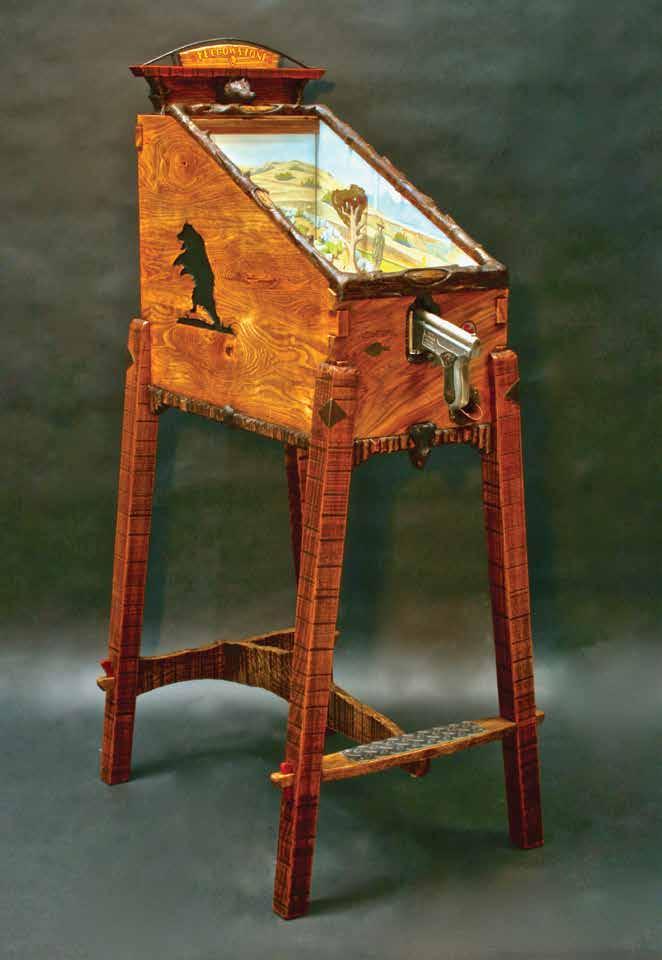
As a team, Lisa and Loren Skyhorse have built more than 1,200 one-of-a-kind saddles, from collection saddles to trail saddles. They opened their first shop in Arcata, California, in 1974 and have been based in Durango, Colorado, since 1996. Lisa is known for her unique carving and painting, while Loren is famous for his silver and leather braiding. Their Golden Eagle Saddle was one of their most challenging, designed to evoke America’s national symbol and most famous phrases yet still be rideable. The artwork includes more than 800 carved and painted feathers and the phrases ‘Land of the Free,’ ‘Home of the Brave,’ and ‘Liberty and Justice for All.’ A bronze eagle head serves as the saddle horn, while the work is presented on a custom wood stand carved like tree branches. The Buffalo Hunt Armoire, a collaboration between Skyhorse Saddle and woodcarver Shane Hughes, includes sculpted, carved, and painted leather panels. In recent years, the couple’s leather craft has expanded into architectural work and wall pieces. Their frequent travels to experience nomadic horse cultures have further informed their art. They’ve worked with horsemen and delivered tools and supplies to locations as far away as Mongolia, the Altai Mountains in Russia, and Peru, and they were awarded a fellowship to study traditional leathercraft in Morocco. Each Skyhorse Saddle creation is a one-of-a-kind heirloom piece, built to be handed down for generations.
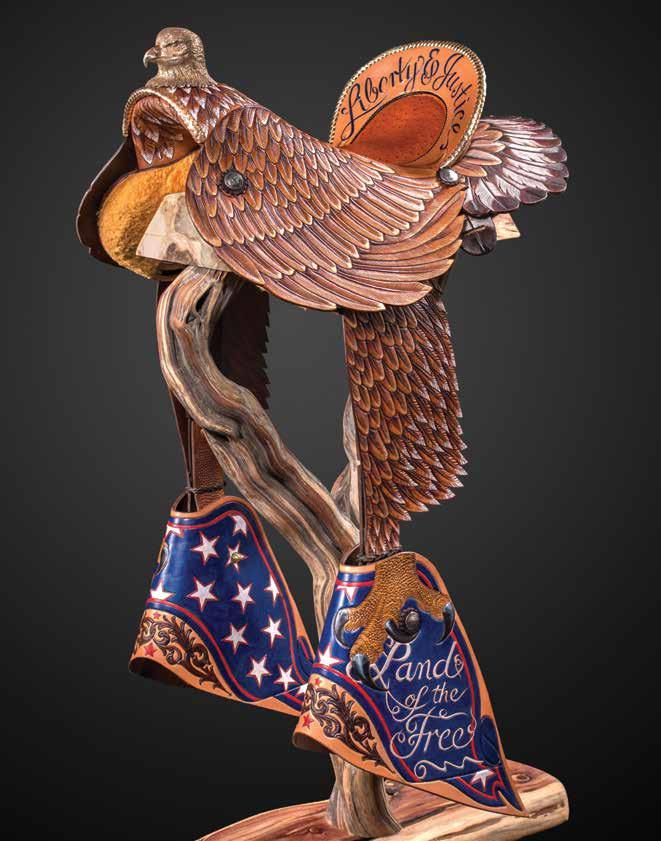




“We draw most of our inspiration from our love of horses, and leather has been our passion for over forty-five years. It is a material that is malleable, archival, functional and beautiful.”The Buffalo Hunt Armoire was a collaboration between Lisa and Loren Skyhorse and Shane Hughes featuring a bison and mounted hunter, feathers, and Native American blanket designs. Winner of the 2018 Western Design Conference Western Spirit Award.
Buffalo Bill, Annie Oakley, and Doc Holiday are pictured on one side of the Buffalo Bill and Friends Saddle. The other side features Chief Yellowtail, Chief Ouray, and Geronimo who performed with them in the Wild West Show. The carved seat is a blanket design from 1890. The silver images and matching stand are engraved with photo images.
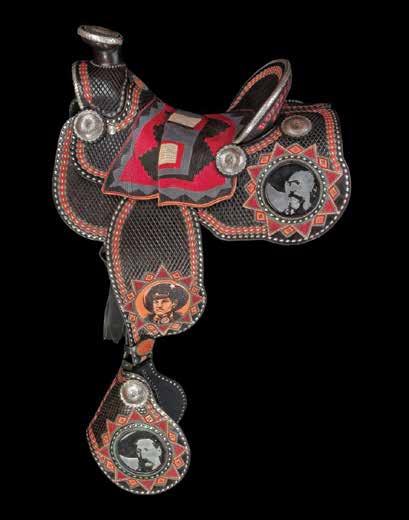


Turquoise Feather Saddle with inlaid Navajo woven seat, turquoise slab, and silver conchos. Feathers were hand carved and painted by Lisa; the silverbraided fork, cantle, and horn are Loren’s specialty.
The half-size Cowboys & Indians Saddle fits perfectly on an executive desk or coffee table. The cowboy side is fully tooled with western flowers, sterling silver cowboy conchos, and a carved and sculpted western horse on the flap of the saddle bag. The Indian side has a turquoise painted, carved, and sculpted Native American horse on the saddle-bag flap and is accented with buffalo-head nickels. The back of the seat is adorned with sterling-silver rectangular horse and buffalo conchos.

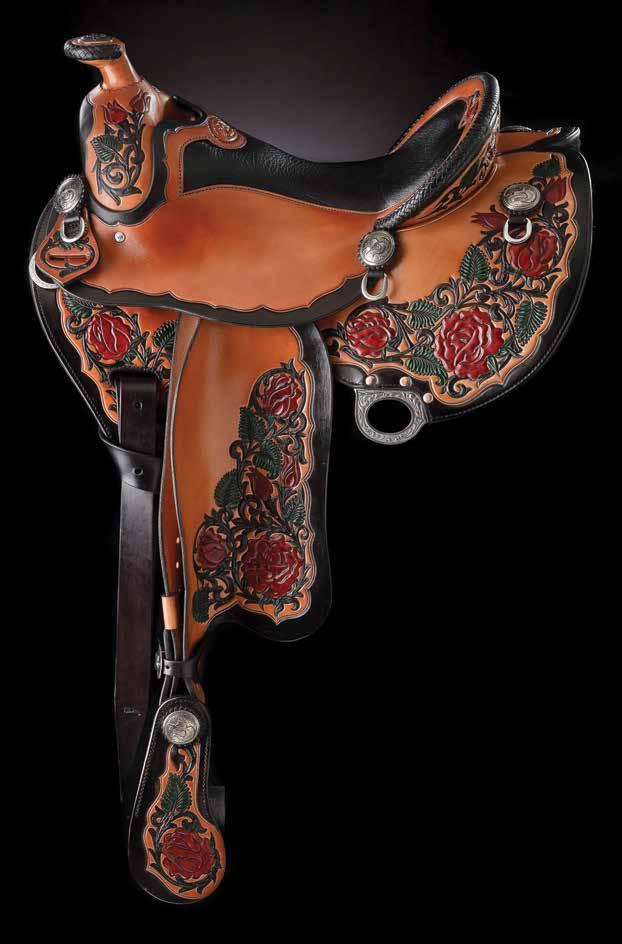
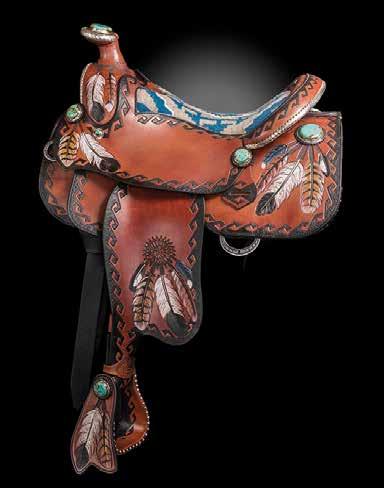
The lightweight Rose Trail Saddle pairs Lisa’s hand-carved and painted design with Loren’s leather-edge braided cantle and buffalo leather inlaid seat.
